This Cal State immigration clinic provides free legal advice. It might come to a ‘full stop’
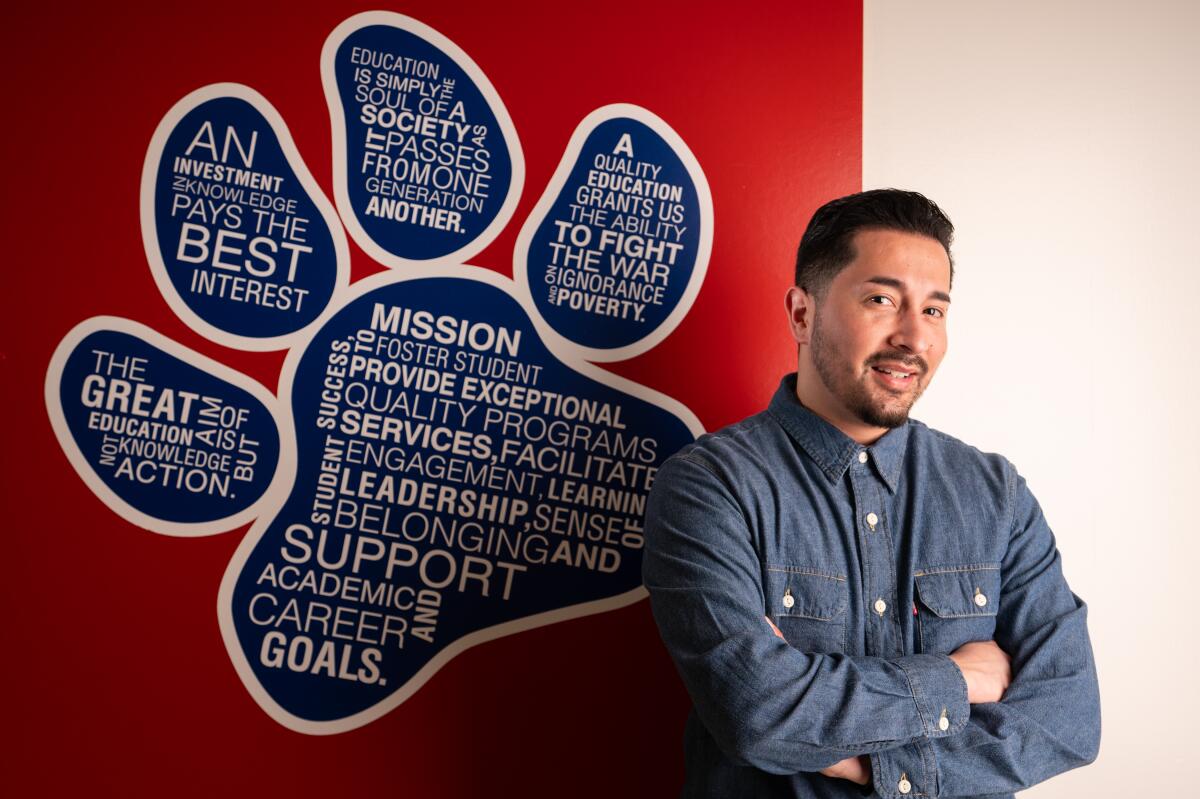
- Share via
Galilea Ramirez was a toddler when her mother brought her across the border from Mexico.
She grew up in Fresno as an undocumented immigrant. As a student at Cal State Fresno, she met for the first time with an immigration lawyer, who said she might be eligible for a visa because she had technically been abandoned by her parents. Her mother had been deported, and her stepfather was eventually unable to care for her.
The lawyer, provided through a state program that offers free immigration services on California State University campuses, helped Ramirez get the visa and a work permit.
She’s now in line for a green card and has secured a paid internship in environmental consulting, the field she plans to pursue after graduation.
“This program changes people’s lives,” said Ramirez, now a 22-year-old senior.

Since 2019, the CSU Immigration Legal Services Project has provided legal representation and other assistance to thousands of students, staff, faculty and their families.
With free legal services on all 23 Cal State campuses, the initiative helps immigrant Californians earn work permits and other legal protections, giving them access to better jobs.
But amid an expected $38-billion budget shortfall, Gov. Gavin Newsom has proposed slashing funding for the program from $7 million annually to $1.8 million for the upcoming fiscal year.
Newsom budget spokesperson H.D. Palmer acknowledged the $5.2-million cut. But in a written statement to The Times last week, he said the state would use dollars from a previous fiscal year to bridge the shortfall and “fully fund the legal services at all campuses through June of 2025.”
The budget maintains existing funding levels for two other state programs providing immigration legal services, Palmer added.
A program that allowed Californians to check out free passes to state parks at their local library is in jeopardy as the state contends with a budget deficit.
If the CSU program’s budget is cut by 75% as proposed, the number of staff provided by four legal service organizations would need to be significantly reduced, said Barbara Pinto, managing attorney for Oakland-based Immigrant Legal Defense, which serves Cal State Fresno and eight other campuses.
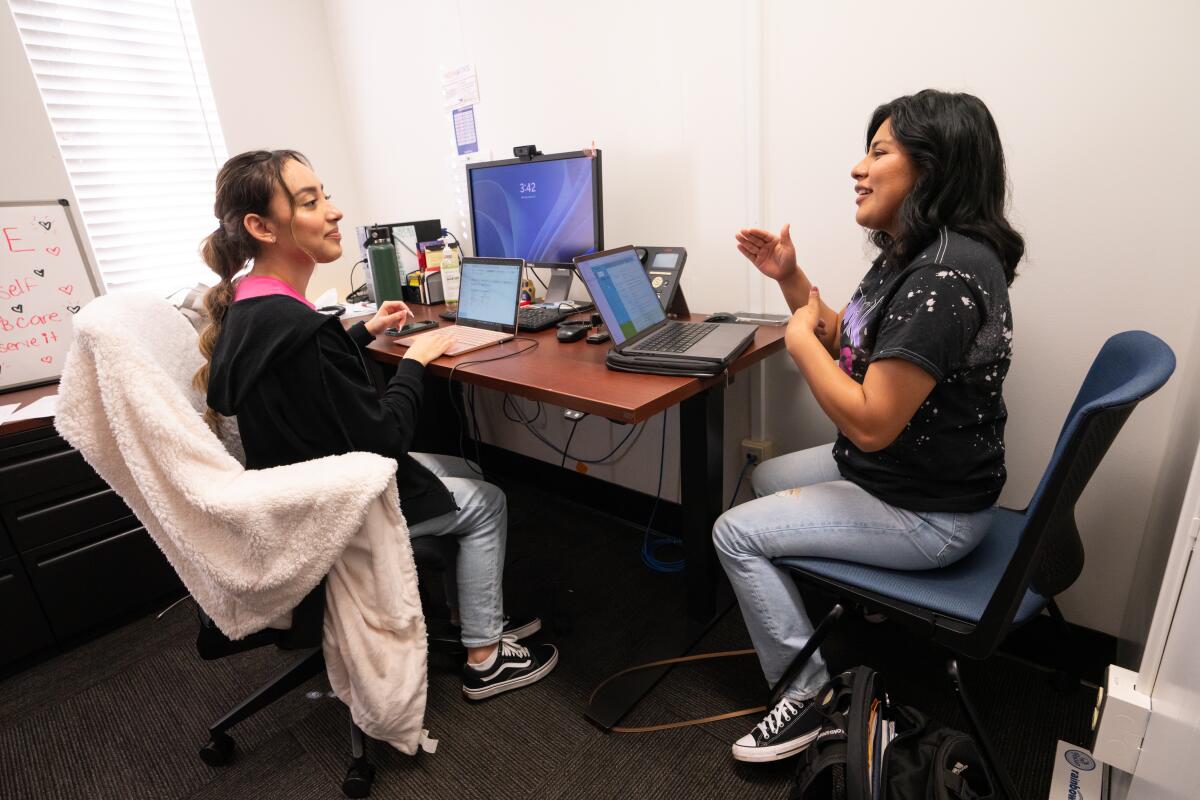
The remaining attorneys wouldn’t have the capacity to take on new clients, she said, and the program would essentially “come to a full stop.”
Even though it serves only those with a connection to the universities, the program has played a vital role in regions with a shortage of immigration services, including the San Joaquin Valley, the Central Coast and the Inland Empire.
Clients in the San Joaquin Valley who lack the time or transportation to seek legal services in coastal cities might have slipped through the cracks, said Allison Davenport, senior managing attorney for the Immigrant Legal Resource Center, who is focused on increasing legal capacity in the valley.
Some might have turned to consultants who aren’t authorized to practice immigration law, including unscrupulous notarios.
“If you’re in L.A. or the Bay [Area] at a CSU, there might be at least another place that could absorb your case, but that’s not necessarily the case in a place like Bakersfield, or Turlock, or Fresno,” Davenport said. “What is the Plan B for those students and their families? It’s a pretty limited landscape here.”
The proposed cuts come at an uncertain time. While the general election is months away, advocates are warning that another Donald Trump administration could bring stricter immigration enforcement.
The future of the Deferred Action for Childhood Arrivals program, or DACA, is in limbo, with the U.S. Supreme Court expected to again review its legality. Most students entering college these days don’t qualify for the program, which gives recipients a work permit and a temporary reprieve from deportation, making their cases more complex, Davenport added.
Despite more than a decade of political and legal attacks, nearly 600,000 people are still receiving the benefits of the Deferred Action for Childhood Arrivals program, renewing their DACA designations in two-year increments.
At Cal State Fresno , the legal services are housed within the university’s Dream Success Center, which serves undocumented and DACA students. Center coordinator Diana Rea Flores recommends that these immigrant students schedule a consultation to see if they qualify for any type of relief.
Students, as well as faculty, staff and their families, feel safe seeking legal advice there, she said. Of the nine campuses where it operates, Immigrant Legal Defense provides the highest number of one-on-one consultations and legal services at Cal State Fresno .
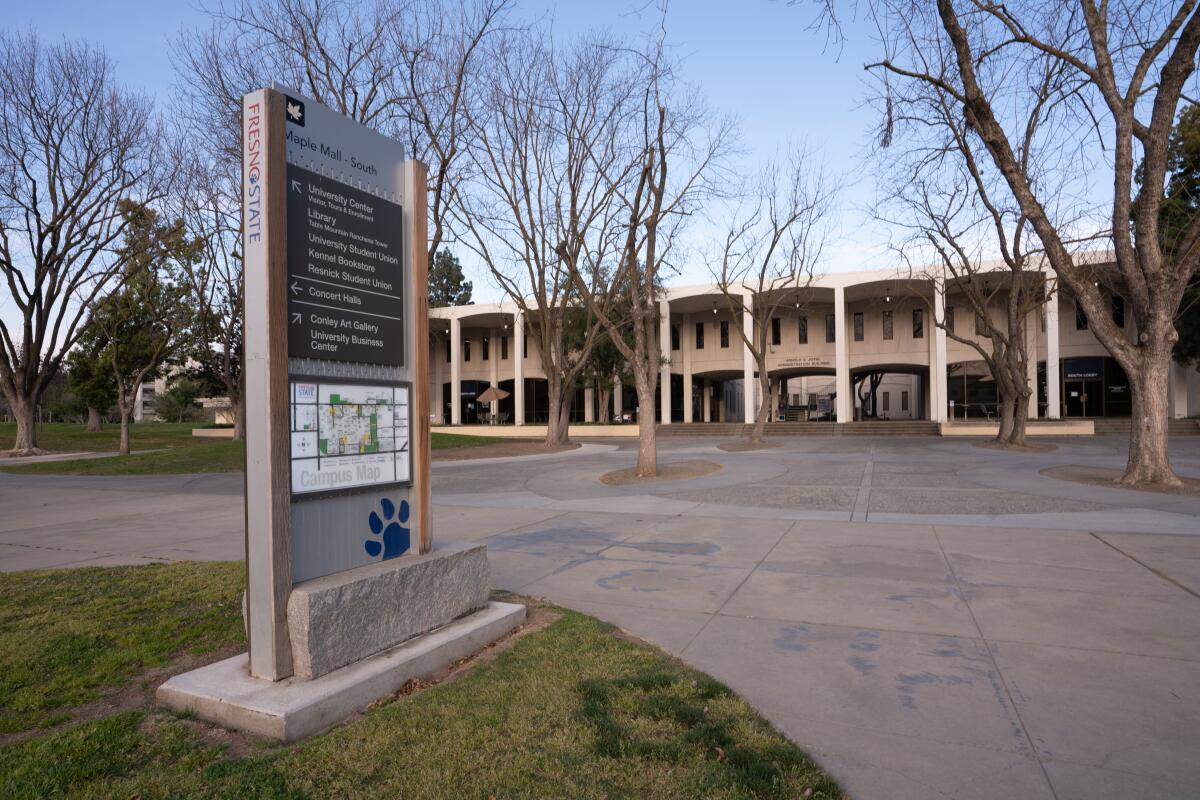
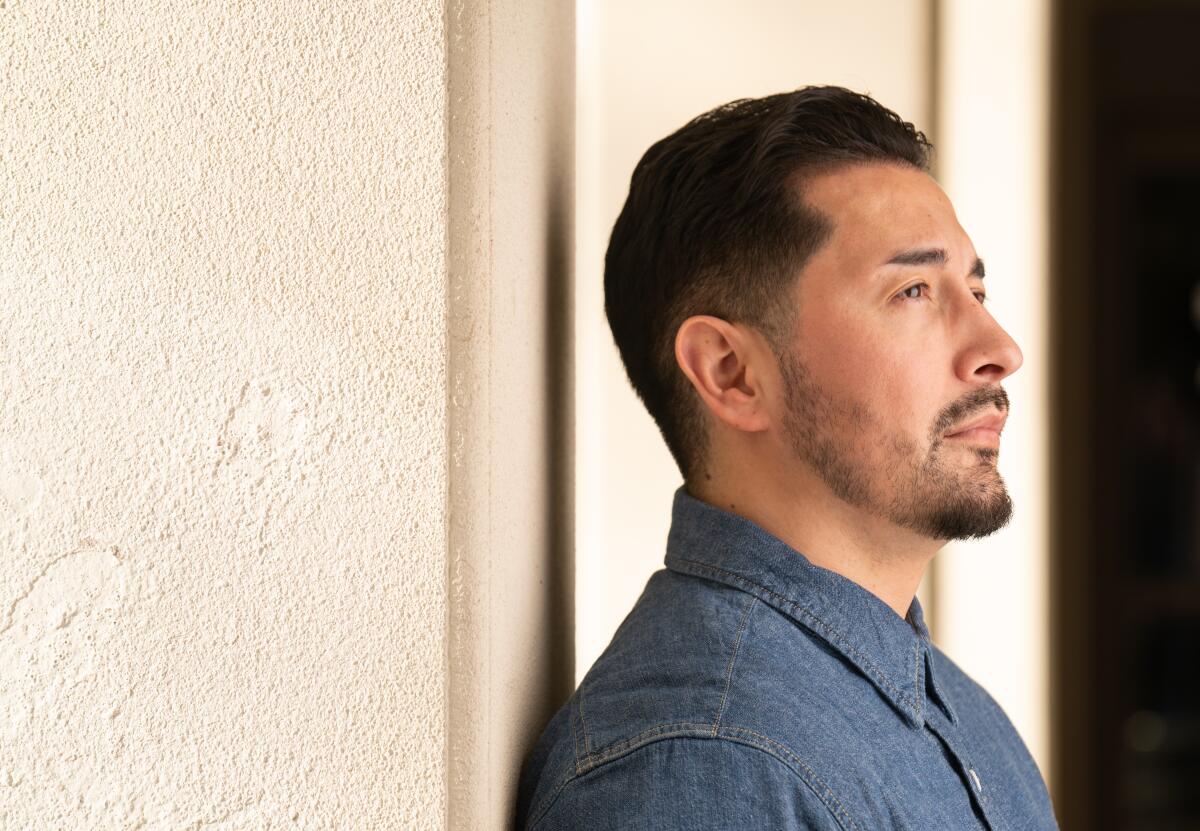
Adolfo Romero Ramirez was a baby when he and his parents emigrated from Mexico.
The first time he applied for DACA, he had to pay both the lawyer and the application fee. At that point, he was picking nectarines, peaches and plums to pay for his courses at Reedley College.
“It wasn’t breaking the bank … but it was a couple hundred” dollars, said Romero Ramirez, who grew up in Parlier, outside of Fresno. “As someone that’s undocumented, trying to go to school and save money for that, every hundred dollars meant a lot to me.”
Since then, he has completed three DACA renewals with help from the legal services program at Cal State Fresno . He has also asked the program’s attorneys about his immigration case.
“Why would they want to stop funding that?” said Romero Ramirez, 35, who earned his bachelor’s and master’s degrees from Cal State Fresno and is now teaching communications there and at Fresno City College . “It’s been such a huge help for people like me.”
In another move, UC regents delayed action until March on a controversial proposal to ban faculty from expressing opinions, such as criticism of Israel, on university websites.
The campus program has played a crucial role in ensuring that more college-educated immigrant students enter the region’s workforce after graduation, Davenport said.
In Fresno County, where less than a quarter of residents have a bachelor’s degree or higher, “it hurts more, because we need those people more desperately than a lot of other regions in the state,” she said.
Though undocumented immigrants can start small businesses or work as independent contractors, she added, “it’s just double the work to have to think about all of these alternative systems.”
Clint Olivier, chief executive of the Central Valley Business Federation, said initiatives that provide qualified workers benefit the region’s business community.
“They’re looking for people to come to them with a good education, and they’re looking for people to come to them with all paperwork in order,” he said. “If a program like this was to go away, there’s no question that there will probably be an impact to the business community.”
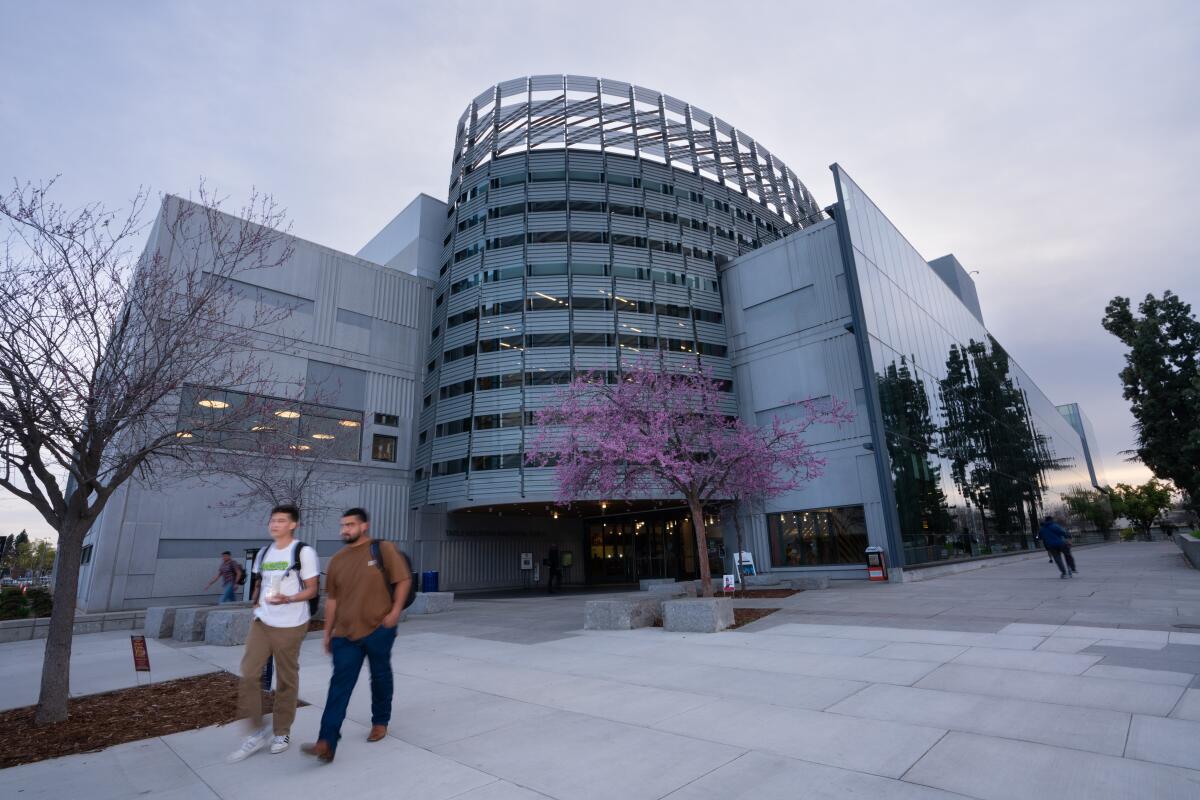
Assemblymember Devon Mathis, a Republican from Visalia, said the state should be investing in infrastructure improvements on CSU campuses, rather than providing immigration services.
Mathis previously supported expanding Medi-Cal to undocumented residents, calling it the “fiscally conservative thing to do.” Immigration legal services are “more of a lane for nonprofits,” he said, calling the state-funded clinic a “misuse of public funds.”
“Is it really the responsibility of the state of California to fund this service through our state universities?” he said. “We can’t even get university facilities done.”
Immigrant advocates, meanwhile, are calling on state lawmakers to fully fund the legal services, a “lifeline” for immigrant families, said Bruno Huizar, the California Immigrant Policy Center’s policy manager for detention and deportation.
State legislators will weigh funding for the CSU Immigration Legal Services Project during budget subcommittee hearings this month and next month.
This article is part of The Times’ equity reporting initiative, focusing on the challenges facing low-income workers and the efforts being made to address the economic divide in California. More information about the initiative and its funder, the James Irvine Foundation, can be found here.
More to Read
Sign up for Essential California
The most important California stories and recommendations in your inbox every morning.
You may occasionally receive promotional content from the Los Angeles Times.














